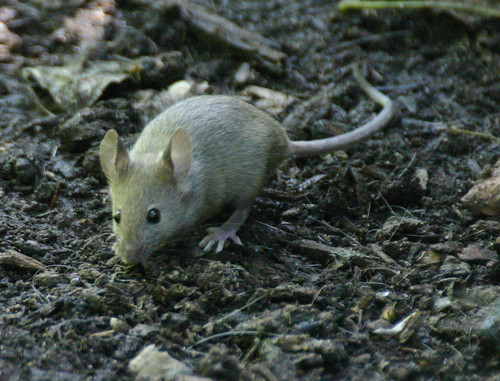Lymphocytic Choriomeningitis Virus...try saying THAT fives fast!
If you have never heard of this virus please take a minute to read this! I'll try to be brief, I promise.
What is it? LCMV is a rodent-borne virus (found in mice/rats etc.)
How do I contract it? Oral or inhalation exposure or broken skin contact with fresh rodent urine, droppings, saliva, or nesting materials. Person-to-person transmission only happens only from infected mother to fetus or from organ transplant.
What are the symptoms? Around 8-13 days after being exposed to the virus there are two phases to the illness. The first starts out with flu-like symptoms (fever, vomiting, diarrhea, weakness, muscle aches, headache) and may last as long as a week. Other symptoms that appear less frequently include sore throat, cough, joint pain, chest pain, testicular pain, and parotid (salivary gland) pain.
Following a few days of recovery, the second phase includes meningitis (inflammation of a layer of tissue surrounding the brain and spinal cord). The symptoms can include fever, severe headache, and a stiff neck. Those infected may also experience drowsiness, confusion, sensory disturbances, trouble with motor skills or paralysis if there is damage to the actual brain tissue itself. There has also been an association between LCMV infection and myocarditis (inflammation of the heart muscles).
Is it usually fatal? Not usually-only less than 1% of people infected die.
Is there a cure? No. Hospitalization and supportive care until your body can fight it off is the only treatment.
If you have a rodent infestation in and around your home, take the following precautions to reduce the risk of LCMV infection:
- Seal up rodent entry holes or gaps with steel wool, lath metal, or caulk.
- Trap rats and mice by using an appropriate snap trap.
- Clean up rodent food sources and nesting sites and take precautions when cleaning rodent-infected areas. See recommendations for cleaning rodent-infested areas.
If you have a pet rodent, wash your hands with soap and water (or waterless alcohol-based hand rubs when soap is not available and hands are not visibly soiled) after handling rodents or their cages and bedding (CDC.gov).
If you would like more information please visit these websites: http://www.cdc.gov/ncidod/dvrd/spb/mnpages/dispages/lcmv/qa.htmhttp://wwwnc.cdc.gov/eid/article/12/5/05-0794_article.htm
I am a bit of a tree-hugger so I like the no kill mouse traps. That way you don't have to touch them and you don't have decomposing rodents in your house. With these you can release them elsewhere!



No comments:
Post a Comment